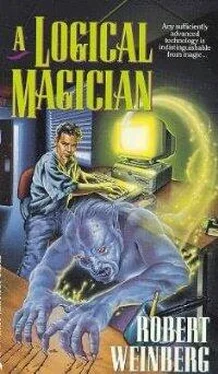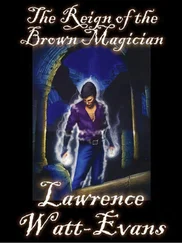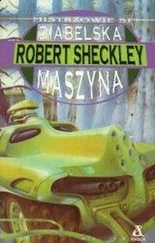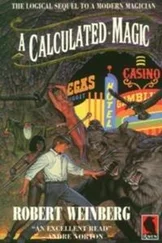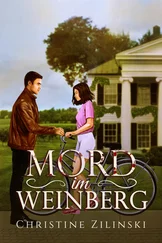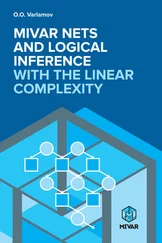Robert Weinberg - A Logical Magician
Здесь есть возможность читать онлайн «Robert Weinberg - A Logical Magician» весь текст электронной книги совершенно бесплатно (целиком полную версию без сокращений). В некоторых случаях можно слушать аудио, скачать через торрент в формате fb2 и присутствует краткое содержание. Год выпуска: 1994, ISBN: 1994, Издательство: Ace Books, Жанр: Фэнтези, на английском языке. Описание произведения, (предисловие) а так же отзывы посетителей доступны на портале библиотеки ЛибКат.
- Название:A Logical Magician
- Автор:
- Издательство:Ace Books
- Жанр:
- Год:1994
- ISBN:0-441-00059-2
- Рейтинг книги:5 / 5. Голосов: 1
-
Избранное:Добавить в избранное
- Отзывы:
-
Ваша оценка:
- 100
- 1
- 2
- 3
- 4
- 5
A Logical Magician: краткое содержание, описание и аннотация
Предлагаем к чтению аннотацию, описание, краткое содержание или предисловие (зависит от того, что написал сам автор книги «A Logical Magician»). Если вы не нашли необходимую информацию о книге — напишите в комментариях, мы постараемся отыскать её.
A Logical Magician — читать онлайн бесплатно полную книгу (весь текст) целиком
Ниже представлен текст книги, разбитый по страницам. Система сохранения места последней прочитанной страницы, позволяет с удобством читать онлайн бесплатно книгу «A Logical Magician», без необходимости каждый раз заново искать на чём Вы остановились. Поставьте закладку, и сможете в любой момент перейти на страницу, на которой закончили чтение.
Интервал:
Закладка:
The dwarf spat on the ground. “I am Fritz Grondark, of the family Grondark, of the Olden Folk who mankind calls dwarfs. Two hundred years ago, Dietrich von Bern approached my people about a special sword he wanted forged. Strictly neutral in the war between good and evil, we accepted his commission on the condition that the weapon be used only in battle. The Olden Folk wanted, even indirectly, no innocent blood on their hands. Von Bern readily agreed to our terms. We should have known better.”
“The Huntsman didn’t keep his end of the bargain,” said Cassandra, a knowing expression on her face.
“Aye,” growled the dwarf. “The German betrayed us. He bathed the steel in the blood of the weak and the poor, the sick and the lame, the young and the defenseless. ‘The Sword of Chaos,’ men named the blade. And cursed the fools who made it.”
Face twisted with anger, the dwarf gnashed together square yellow teeth. “Worse yet, the Huntsman never paid his bill. He was not only a liar, but a cheat!”
“Dwarfs are notoriously sensitive about debts,” whispered Simon in Jack’s ear. “Grondark could prove a useful addition to our party.”
“My thoughts exactly,” muttered Jack to the changeling.
The dwarf ran his thick fingers over the cut metal. “I can taste the blade’s poison sinking into the steel,” he declared, grimacing. “This wound requires immediate attention.”
He stroked the Buick on the side, like a man petting a dog. “To the garage with you,” he said, his voice gentle and caring. “Fritz Grondark honors his promises.”
The Buick’s engine coughed to life. Headlights flicked on. Gears shifted into drive. The emergency brake popped. Slowly but steadily, the unmanned auto drove off towards the rear of the old service station.
“Nothing to worry about,” said Grondark. “It remembers where to go. My repair bays are in the back of the garage.”
The dwarf squinted at Jack. “I gather you’re the leader of this party. What’s your quarrel with the Huntsman?”
“It’s a long story,” said Jack. “One that might interest you if you’re willing to listen. There’s a chance for money to be made. Maybe even offer a bold dwarf the possibility to collect on a long outstanding bill.”
Grondark smiled. “When money talks, dwarfs listen. Come with me to my workshop. We can wet our whistles with some cold beer. And discuss these matters further.”
32
They spent the rest of the night and most of the next morning at Fritz Grondark’s garage. Cassandra, Simon and Sylvester slept, having skipped resting for long hours, while Jack remained awake and watched the dwarf work on the Buick. Much of that time, Jack related his adventures over the past few days.
The greasemonkey listened attentively, interrupting frequently to clarify specific points. The mention of the Universal Charge Card brought a gleam to his eye. He grunted in disgust at the Huntsman’s treachery at the mathematics building. Cassandra’s battle with the trolls had him grinning. Dwarfs and trolls, Jack discovered, were mortal enemies. But, more than anything else, the dwarf was fascinated by Jack’s musings on the symbolism of cold iron.
“Of all the fey folk, only my people mined and forged cold iron,” declared the dwarf as he pounded the Buick’s roof with an immense hammer. “As neutrals in the eternal war between good and evil, we were not affected by the power of the star metal. Thus, given to us was the task of creating the great swords of power.”
The dwarf smiled as if recalling far-off days. “In our great caverns beneath the mountains, my brothers and I wrought the steel and etched the runes, bringing life to those blades. Even their names were magic—Durandel, Joyeuse, Excalibur. Those were exciting times, Jack Collins, exciting times.”
“I understand,” said Jack, captivated by Grondark’s tale. “But what is the real secret of steel, of cold iron? Swords made from it killed dragons,” continued Jack, trying to find an answer. “Peasant folk hung iron horseshoes over their doors to keep out demons. In Roman days, iron coffin nails provided protection against evil spirits. Magicians often used circles of magnetized iron to imprison ghosts. Yet, in modern times, Dietrich von Bern wields a steel sword. And the Border Redcaps use guns loaded with steel-jacketed slugs. What happened?”
“Perhaps,” offered Grondark, smoothing out the steel, “it became too common? In ancient limes, only the mightiest warriors carried weapons of iron. Oftentimes, charms contained bits of iron, not gold.”
“Too common,” repeated Jack, his mind whirling. His thoughts from earlier in the evening came rushing back. “Good versus evil, order versus chaos. Symbols and specifics.”
“What are you muttering?” asked Grondark.
“You mentioned the great swords of power,” said Jack, leaping from one idea to another. “Why were all the famous weapons swords? Why not spears? Or axes?”
“There were a few of those,” said Grondark, frowning, “but not many. Magic swords were always the weapon of choice. Heroes preferred them two or three to one over other killing devices. They loved their swords. Oftentimes, the damned fools insisted on being buried with them. As if grave robbers wouldn’t dig them up a week later for the booty. At least Roland tried to destroy Durandel. Not that it did him much good. We built swords to last.”
Like all the supernaturals, Grondark exhibited a tendency to rattle on if given the chance. Ordinarily, Jack would have found his meanderings fascinating, but not at the moment.
“Why swords?” Jack asked again, trying to steer the dwarf back in the right direction.
“They combine fire and iron,” declared Grondark dramatically. “Swords are forged. They are fire and iron, united. A strong blade is the marriage between the two greatest forces of order.”
Seeing the sudden look of comprehension on Jack’s face, he asked, “Is that the secret, Jack Collins?”
“Yes,” said Jack, the truth bursting within him. “Yes, that is the secret, Grondark.”
“Then would you please explain it to me,” said the dwarf, “because I have no idea what you are talking about.”
“The important word is order,” said Jack, slipping into his teaching mode. “Most superstitions are grounded in a fear of the unknown, of chaos. Primitive man was frightened by many things he did not understand, so he personified them—gave them form and substance. Which is how the first supernatural beings came into existence. They were creatures of the fear, the disorder, that surrounded and threatened early mankind.
“Then came the first major step in human progress. The taming of fire. Using it, man was no longer afraid of the dark. The night was still threatening, but it was not overwhelming. Fire was symbolic of the triumph of order over chaos, civilization over anarchy.”
“What about cold iron?” asked the dwarf.
“Order over disorder, law over chaos,” declared Jack. “That’s the symbolism I was searching for. The conquest of fire led to the mastery of metal. Again, mankind used cold iron, used steel to transform society from the chaotic to the orderly. Iron weapons, iron horseshoes, iron nails brought order to the world. It drove out chaos.
“By definition, most supernatural beings, especially those of evil, were creations of chaos. Even the faeries, like Simon and his relatives, were considered mischief makers, trouble bringers. They were symbolic of disorder. That was why iron hurt them as well as the dragons, the monsters, the bogies. Order triumphed over chaos. That’s the key.”
“The key to what?” asked Cassandra, wandering into the garage, rubbing sleep from her eyes. “What’s got you so excited, Jack?”
Читать дальшеИнтервал:
Закладка:
Похожие книги на «A Logical Magician»
Представляем Вашему вниманию похожие книги на «A Logical Magician» списком для выбора. Мы отобрали схожую по названию и смыслу литературу в надежде предоставить читателям больше вариантов отыскать новые, интересные, ещё непрочитанные произведения.
Обсуждение, отзывы о книге «A Logical Magician» и просто собственные мнения читателей. Оставьте ваши комментарии, напишите, что Вы думаете о произведении, его смысле или главных героях. Укажите что конкретно понравилось, а что нет, и почему Вы так считаете.
